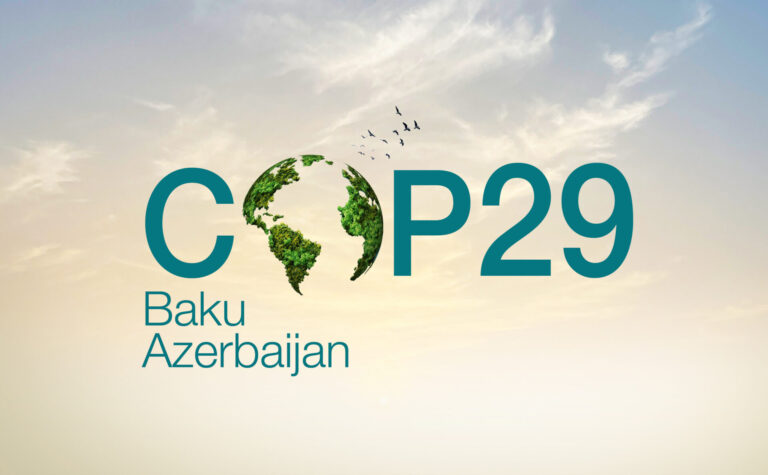Two significant developments in the UK’s energy sector illustrate the evolving landscape: a predicted sharp rise in oil and gas...
Read More- Industry Updates
COP29 Day 7 Summary: 18th November 2024
-
 James Turnbull
James Turnbull
- 2 minute read
Teaching Sustainability: Net Zero Solutions for the Education Sector
Why Net Zero Matters for Your Institution With the UK government committed to achieving net zero carbon emissions by 2050,...
Read MoreChancellor’s Spending Review: What It Means for UK Businesses
In the latest Spending Review, Chancellor Rachel Reeves outlined a significant financial commitment to clean energy and infrastructure projects, reaffirmed...
Read MoreCOP29 is proving to be a pivotal yet contentious chapter in global climate negotiations. With only five days left in the summit, delegates face significant challenges, from deadlocks in discussions to rising tensions over financing commitments. As the urgency to deliver tangible solutions grows, debates over climate finance, energy transition support, and the role of developing nations like China are dominating the agenda.

A Potential Stalemate
With just five days of negotiations remaining, COP29 faces mounting concerns that the entire climate process could stall, or even regress, if governments fail to compromise. Simon Stiell, Executive Secretary of the UNFCCC, warned that the talks risk deadlock if countries “dig in and refuse to move on one issue until others move elsewhere.” This rigid stance has the potential to hinder progress at a crucial stage, highlighting the need for collaborative action to sustain momentum.
The first week of the summit in Baku ended with widespread frustration over the lack of progress on financing energy transitions and climate adaptation for developing countries. While the Azerbaijani presidency claimed an early success with an intergovernmental agreement on a global carbon credit system, the absence of other significant breakthroughs has disheartened some.
Clare Shakya, global climate chief at The Nature Conservancy, described the slow pace of negotiations as “unnerving,” comparing it to the stagnation seen at climate COPs prior to the 2015 Paris Agreement revitalising the process. As the summit enters its second week, pressure is mounting to accelerate discussions and deliver meaningful outcomes.
New Suggestions - The New Collective Quantitative Goal
The commitment made in 2009 by a handful of developed nations and the EU to mobilise the equivalent of £80 billion annually by 2020 (a target that was missed by two years) has become a focal point for increasing climate finance post-2025.
As the conference reaches its halfway point, these differing perspectives highlight the complexities of global climate finance discussions.
Climate Commissioner Wopke Hoekstra is quoted as saying “A potential solution could be to… move to a space of voluntary contributions.” Suggesting that countries such as China and Saudi Arabia, whose economies have boomed since the 1990s, could voluntarily contribute to the NCQG whilst retaining their status as developing nations.
As COP29 enters its final stretch, the outcomes remain uncertain. The lack of progress on critical issues like financing for developing countries and the debate over broadening the donor base underscore the complexity of the global climate process. While early successes, such as the agreement on a global carbon credit system, offer a glimmer of hope, the broader negotiations have been less productive than expected. The coming days will determine whether this summit can break through the stalemate and set the stage for a more inclusive and effective framework to address the climate crisis.
Catch Up On Previous COP29 Updates

COP29 Day 11 Summary: 22nd November 2024
The 11th day of the COP29 climate summit in Baku, Azerbaijan, concluded with an agreement on a new climate finance

COP29 Day 10 Summary: 21st November 2024
COP29 has brought climate finance to the forefront of global discussions, highlighting the urgent need for developed nations to support

COP29 Day 9 Summary: 20th November 2024
On the ninth day of COP29 in Baku, Azerbaijan, discussions brought to light significant disagreements between developed and developing nations,

COP29 Day 8 Summary: 19th November 2024
Day 8 of COP29 in Baku, Azerbaijan, focused on tackling the challenge of climate finance, with a spotlight on how

COP29 Day 7 Summary: 18th November 2024
COP29 is proving to be a pivotal yet contentious chapter in global climate negotiations. With only five days left in

COP29 Weekend Summary: 15th-17th November 2024
This weekend at COP29 highlighted key debates about fossil fuels and strategies to combat the climate crisis. Progress was made

COP29 Day 4 Summary: 14th November 2024
Day four of COP29 in Baku brought critical discussions to the forefront, focusing on two pressing issues: the urgent need

COP29 Day 3 Summary: 13th November 2024
On Day 3 of COP29 in Baku, Azerbaijan, global leaders pushed for stronger climate cooperation, with discussions centering on several

COP29 Day 2 Summary: 12th November 2024
On Day 2 of COP29 in Baku, Azerbaijan, global leaders continued discussions on urgent climate action, focusing on financing, emission

COP29 Day 1 Summary: 11th November 2024
The 29th United Nations Climate Change Conference (COP29) commenced on November 11, 2024, in Baku, Azerbaijan, marking a pivotal moment




